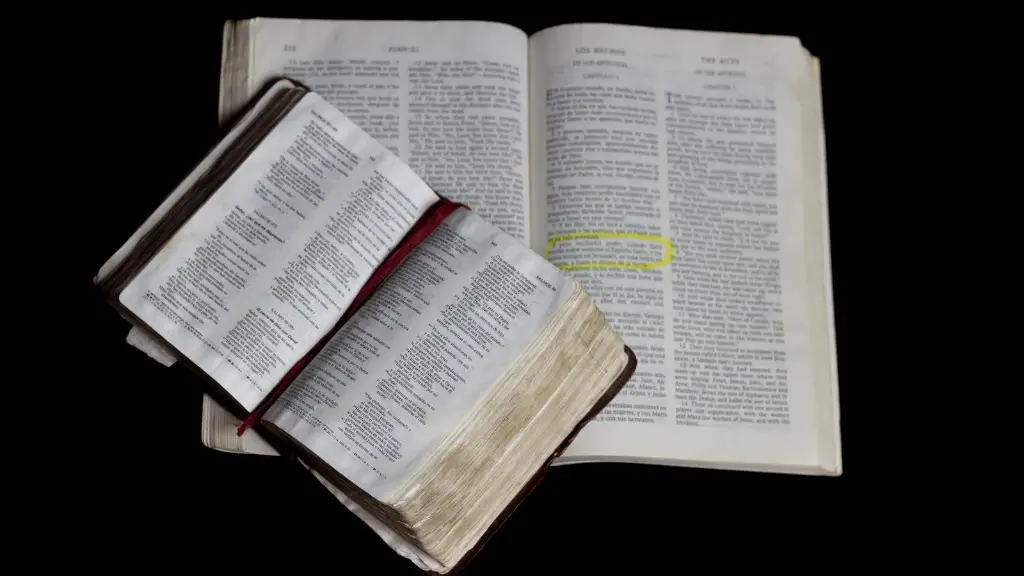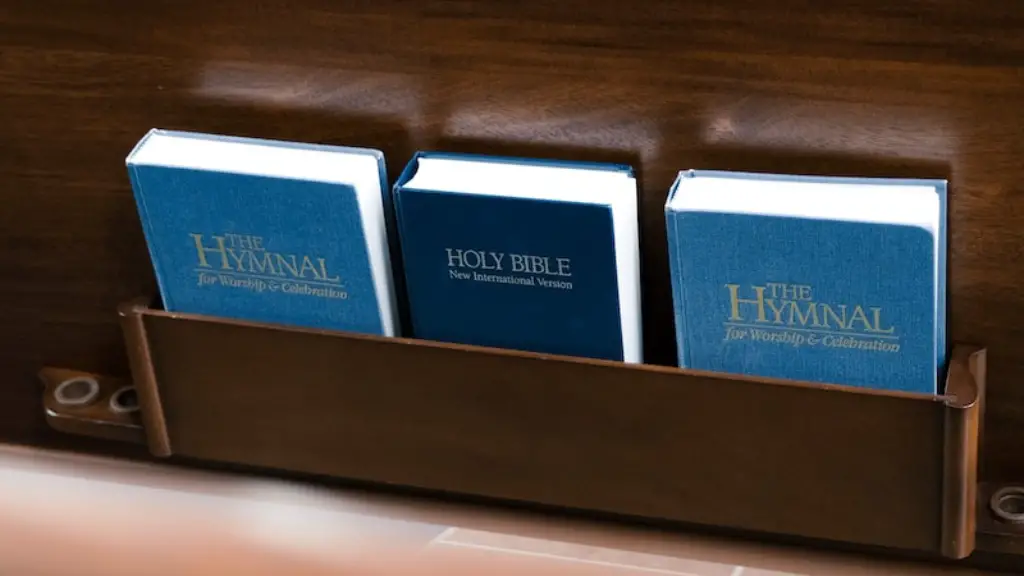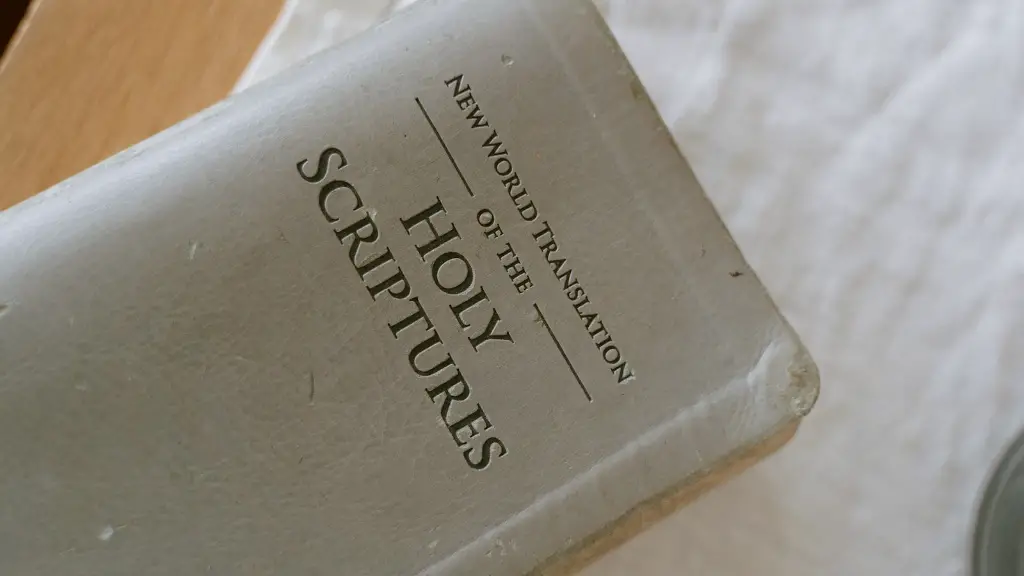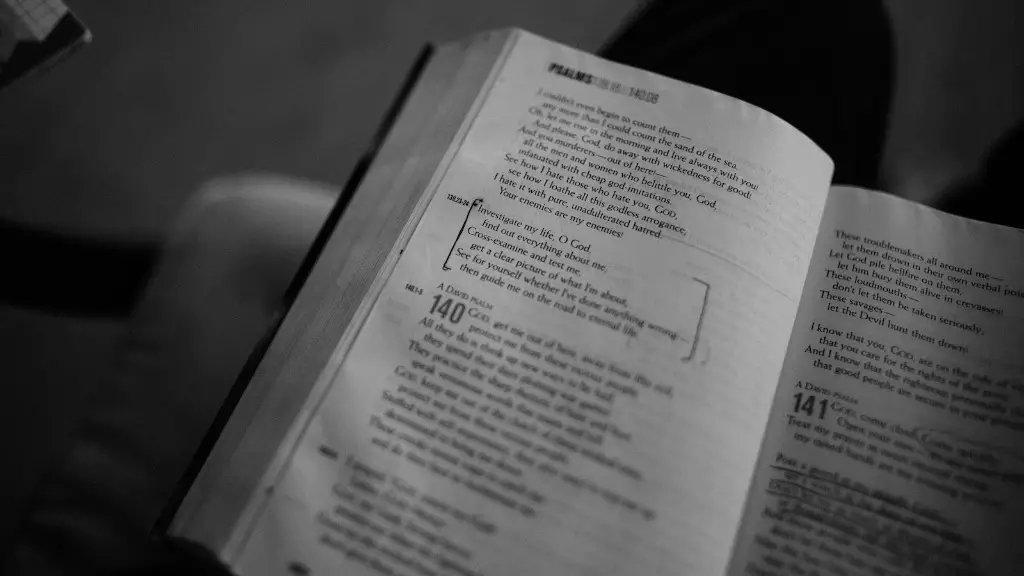Many people are unaware that the Bible has anything to say about cremation, particularly since the practice has only become popular in recent years. Cremation is the process of burning the remains of a deceased person, resulting in the reduction of the body to ash or bone fragments, which can then be stored in an urn or scattered. Generally, cremation occurs after a funeral ceremony and burial, or in lieu of a funeral ceremony and burial. So what does the Bible have to say about this practice?
The Bible does not explicitly state anything about cremation, which doesn’t come as a surprise given its age. Instead, we have to look at the cultural context of ancient Israel and the surrounding cultures of the time to understand the prevailing opinion on the issue. The ancient Israelites had a strong aversion to cremation, believing that a body that was to be cremated had to have been cursed by God.
In the Bible, there are examples of someone burning a corpse, but these examples are usually of enemies being burned as a form of punishment. For example, King Ahaz burning his sons as a form of worship of the god Molech (2 Kings 16:3). Another example is the burning of idols, which is depicted several times throughout the Bible (Deuteronomy 7:25; 2 Kings 23:20).
The reason for the ancient Israelite’s aversion to cremation was likely due to their belief that the body was a temple of the Lord and that the soul would return to the body after death. Cremation was seen as a direct insult to God by desecrating the body, and therefore was seen as a practice not to be done.
The opinion on cremation has changed over time, and today it is not only accepted but also encouraged by many Christian denominations. This is because cremation is seen as a way to simplify the funeral and burial process. It is also seen as a cost-effective alternative to traditional burial and is seen by some as a way to avoid polluting the surrounding environment. In addition, the remains can easily be stored and transported or scattered, if desired.
Today, there is no canonical or universal stance in Christianity on the issue of cremation. As such, it is ultimately a personal decision as to whether or not to be cremated. While the Bible does not expressly forbid cremation, it also does not encourage it. Therefore, it is ultimately up to each individual to decide what to do with their remains and how to honor the Lord.
Funeral Customs of Biblical Times
A number of funeral customs have been preserved in the Bible, but the details of each custom vary depending on the time, culture and circumstance. In general, the funerals of the Bible involved a period of mourning, which occurred both prior to and after the burial. According to Numbers 19:12-20, the corpse was also to be buried as soon as possible and be given a very simple funeral. This could involve the burial of the body in a shroud or a wooden casket, or even being laid in a cave. During the burial, mourners would come to mourn the dead person and offer their condolences.
The Bible is also clear about the importance of mourning for the dead and the importance of care for the body. The Bible helpfully gives us the example of how Jesus and those close to him prepared the body of Lazarus for burial when he died. Even though they knew he was going to be resurrected, they still performed the burial of his body and mourned his death.
Funerals in the Bible were kept very simple and involved no lavish celebration. The body of a loved one was thought of as a temple of God and was to be treated with respect. This could explain the ancient Israelite aversion to cremation. It was seen as a form of desecration and was seen as a practice to be avoided.
Modern-Day Perceptions
In recent years, the perception of cremation has changed and it is now viewed as a valid option for disposing of the human body. While some Christian denominations still oppose cremation due to the biblical context, many now view cremation as an acceptable option for honoring the deceased.
While it is still important to consider the customs and teachings of the Bible when making decisions about burial, it is ultimately a personal choice as to which method is best for honoring the deceased. There are pros and cons to both methods, and the best option for each individual is the one that most closely aligns with his or her values and beliefs.
In many cases, the decision of whether to have a traditional burial or cremation can be made by the deceased prior to their death, so that their wishes are known and respected. In these cases, it is important to honor their wishes and respect their legacy by ensuring that their body is handled with respect and in accordance with their wishes.
Environmental Issues
Aside from personal beliefs and values, another factor to consider when deciding on burial methods is the environment. Traditional burials involve the use of a lot of natural resources for the casket, embalming fluid, and other materials. Cremation, on the other hand, can be seen as an environment-friendly option, as it does not involve the use of such resources and also allows for the remains to be scattered in a natural area or kept in an urn.
Cremation does produce some carbon emissions, but these emissions are much lower than that of a traditional burial. In addition, cremation does not require the use of land and embalming fluid, which can pollute surrounding soil and ground water. Therefore, many consider cremation as a more sustainable option.
It is important to note, however, that cremation should not be seen as a substitute for funeral services, but as an additional option. The Bible still emphasizes the importance of mourning and caring for the body, regardless of whether the body is to be buried or cremated.
Honor the Deceased
What the Bible emphasizes more than anything is that when a person dies, they should be remembered and honored. Whether it is through a traditional burial or cremation, it is important to honor the deceased and allow them to rest in peace.
For those who choose cremation, there are a variety of ways to honor the deceased, including scattering the ashes or keeping them in an urn. There are even companies that specialize in creating beautiful keepsakes that can incorporate the ashes of the deceased.
Ideally, whatever method is chosen should be one that honors the life and legacy of the deceased while also being respectful to their memory. While the Bible may not provide a clear-cut answer to the question of cremation, it does provide an important reminder that any treatment of the body should be done in a respectful and dignified manner.
LGBTQ Issues
The question of cremation and its relationship to the Bible is one that can sometimes be complicated by LGBTQ issues. While the Bible does ascribe some beliefs about gender and sexuality, this does not necessarily mean that LGBTQ individuals should be treated differently in death. In fact, the Bible emphasizes several times the importance of treating all of mankind with respect, regardless of their sexuality.
Therefore, when considering the issue of cremation, it is important to remember that the Bible stresses the importance of respect and dignity for all people, regardless of their sexuality, gender identity, or any other factor. It is important to remember that all people have a right to have their wishes respected concerning the disposal of their remains and that all people should be treated with the same dignity and respect in death.
Cremation as an Option
Ultimately, the Bible does not provide a definitive stance on the issue of cremation, as it did not exist during the period in which it was written. However, the Bible does provide examples of how to treat the dead body with respect and honors their memory. Therefore, it is ultimately up to each individual to decide whether or not cremation is the best option for them and how to honor their deceased loved one.
When making the decision, it is important to consider environmental, financial, and personal factors, as well as one’s beliefs and values. While the Bible does not provide a definitive answer, it does offer guidance on how to honor the body of the deceased, regardless of one’s religion or beliefs.





